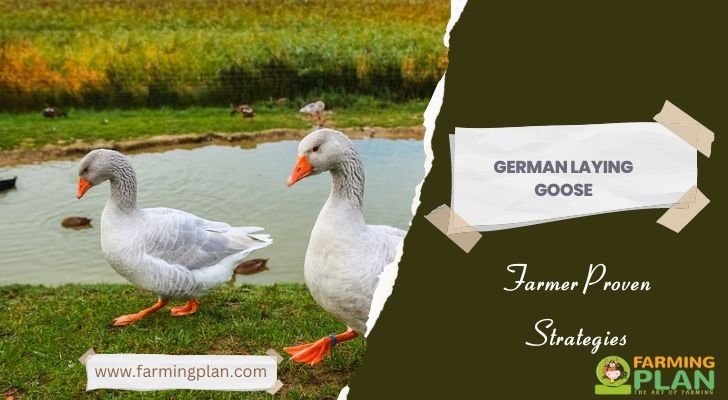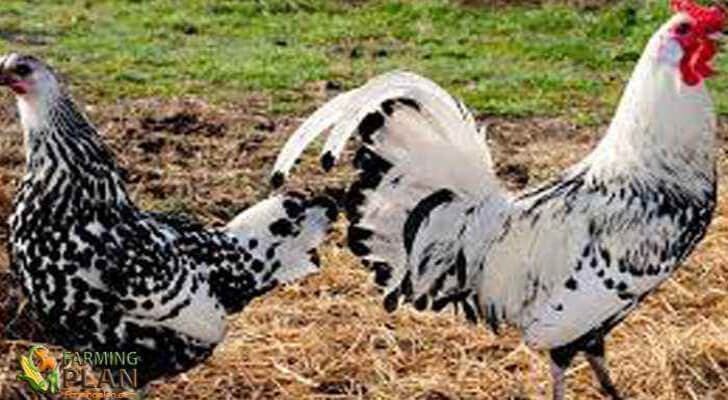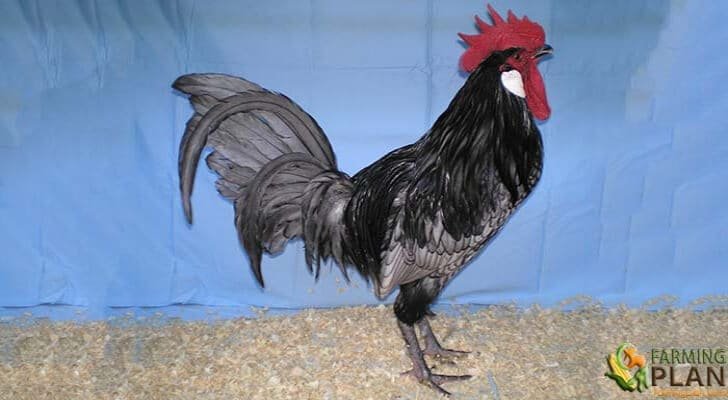Are you interested in getting into the farming of German laying geese? If so, then you’ve come to the right place! This blog post provides proven strategies for achieving success as a farmer of these unique and productive birds. Whether you’re just starting out with your first flock or have years of experience under your belt, we’ll walk you through every step needed to get the most out of your venture. From purchasing healthy stock to housing, feeding and marketing successfully bred eggs, this post will be an invaluable tool in setting up your own profitable German Laying Goose farm. So read on and learn how to make sure that news of your quality birds spreads far and wide – after all, what better way is there than word-of-mouth to advertise something as extraordinary as these special geese?

History & Origin
The German laying goose is a fascinating bird, with a history that runs deep. As the name suggests, this breed of goose hails from Germany, where it was bred for its exceptional egg-laying abilities. But the history of this bird goes back even further, to the ancient Romans, who were known to keep geese for both their eggs and as guards for their property. Today, the German laying goose can be found all over the world, beloved for its hardy nature and excellent egg production. But it is still the rich history and heritage of this breed that makes it truly special.
Characteristics Of German laying goose
The German laying goose, also known as the Deutsche Legegans, is a well-respected breed renowned for its impressive egg-laying abilities. These geese have a friendly disposition coupled with a steadfast commitment to producing ample quantities of large, creamy-white eggs. Their feathers are typically light gray, with the bill and legs a pale orange hue. Some breeders have been known to keep the German laying goose for meat, but their superior egg-laying traits are what truly set them apart. These geese are an excellent choice for farmers and hobbyists alike who are seeking a reliable, pleasant, and productive addition to their flocks.
Feed
Have you ever heard of the German laying goose? This distinctive bird is a hardy and productive domesticated breed, prized for its excellent egg-laying abilities. Originally developed in Germany, these geese have become popular throughout the world for their docile nature and reliable egg production, making them a favorite among farmers and hobbyists alike. Not just for making delicious omelets and quiches, the German laying goose can also provide an important source of income for those looking to sell their surplus eggs. Add the German laying goose to your flock and enjoy the many benefits of these wonderful birds.
Usage
The German laying goose is a fascinating breed of domestic goose that is highly sought after by farmers and backyard poultry enthusiasts alike. Originally developed in Germany for their superior egg-laying abilities, these geese can produce up to 150-200 eggs per year! In addition to being a reliable source of fresh, nutritious eggs, the German laying goose is also a friendly and docile bird that is easy to care for. With their unique appearance and charming personalities, it’s no wonder that these geese have become a beloved breed among poultry keepers worldwide.
Special Feature
Have you ever heard of the German laying goose? This unique breed of goose is known for its incredible egg-laying abilities, producing an impressive 150-200 eggs per year. With its striking appearance, including a blue head and a white body with grey spots, the German laying goose is not only a functional bird but also a beautiful one. Originally bred in Germany in the early 20th century, this breed has since become popular in other parts of the world due to its exceptional egg production and attractive appearance. Whether you’re a farmer looking to add an efficient producer to your flock or simply a bird enthusiast, the German laying goose is definitely a breed worth considering.
Invest in the proper housing
If you’re the proud owner of a German laying goose, investing in their proper housing, nutrition, and healthcare should be a top priority. Not only will it help ensure that your geese live longer and healthier lives, but it will also help improve egg production and overall quality. When it comes to housing, opt for a sturdy and spacious coop with plenty of ventilation and insulation to keep your geese cozy and protected from the elements. As far as nutrition goes, make sure your geese have access to a balanced and nutrient-rich diet that includes plenty of fresh greens and clean water. And lastly, don’t skimp on healthcare – regular vet check-ups and preventative measures, such as vaccinations and deworming, can help catch and prevent any health issues before they become serious. By investing in the proper housing, nutrition, and healthcare for your German laying goose, you’ll be sure to have happy and healthy geese for years to come.
Establish a safe environment
Creating a safe environment for our furry friends is crucial to their well-being. For those who own a German laying goose, this can be especially important. These beautiful birds need to wander and explore, but we also need to ensure they are properly protected. By establishing a safe environment for our geese to roam, we can give them the freedom and safety they need to thrive. Taking the necessary precautions, such as providing sturdy fencing and attentive supervision, can keep our feathered friends happy and healthy. A safe environment not only benefits the goose, but also brings peace of mind to us as their caretakers. With a little effort, we can create a haven for our German laying geese to explore and enjoy.
Monitor their progress
Keeping track of your German laying goose’s progress is crucial to ensure their well-being and growth. Regularly monitoring their behavior, feeding habits, and overall health can help you make necessary adjustments to their diet, environment, or medical treatment as needed. By being observant and proactive, you can help your German laying goose develop into a happy and healthy bird that lays plenty of delicious eggs. So take the time to keep an eye on your feathered friend and don’t hesitate to make changes when necessary – your goose will thank you for it!
Have patience
Raising geese is a rewarding experience, but it requires patience. It takes time for these feathered friends to grow and develop into healthy adults. Specifically, the German laying goose is a wonderful bird to raise for their incredible egg-laying abilities. But don’t expect these geese to start producing eggs immediately. Patience is a virtue when it comes to raising these geese. It’s important to be patient with them as they grow and develop, and to understand that the payoff for all of your hard work and dedication will come in time. So, make sure to enjoy the journey and the unique personalities that each goose will bring to your flock.
FAQ
How do German laying geese lay eggs?
German laying geese, sometimes referred to as East German Heavy Geese, are a special breed of goose originally bred in what is now modern-day Germany. These large and hardy birds are popular among farmers and backyard flock owners alike because they lay unusually large eggs with brown shells. The size of these eggs and their quantity makes them an attractive egg-producing option for many people.
What do German laying geese eat?
German laying geese are a unique breed of farmyard fowl that lays eggs about 4-5 days per week. Unlike other breeds, they lay fewer eggs in the winter but pick up production in the spring and summer months. As far as diet goes, German laying geese consume a variety of items to maintain their health and egg-laying production.
What is the lifespan of a German laying goose?
The lifespan of a German laying goose depends on the bird’s environment and health, but it can range from approximately 10-25 years. In the wild, these birds have been observed to live up to 25 years. Commonly, however, they are kept in captivity or in home gardens and therefore their average life expectancy is around 10-15 years.
Conclusion
All in all, the German laying goose can be a great addition to any homestead or farm. They produce large amounts of eggs in a short time span with minimal care and maintenance needed from their keepers. By investing in proper housing and nutrition as well as monitoring them regularly, caring for these geese is relatively straightforward. Above all else, patience is key when raising geese, but with the right guidance and dedication you’ll soon have your own brood of healthy egg-producing geese!


